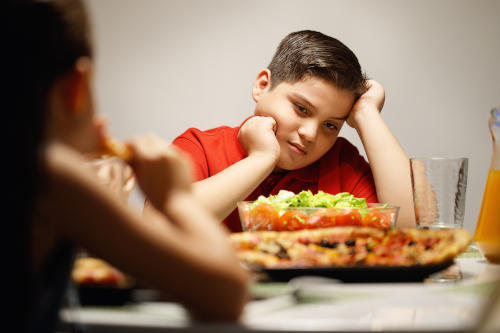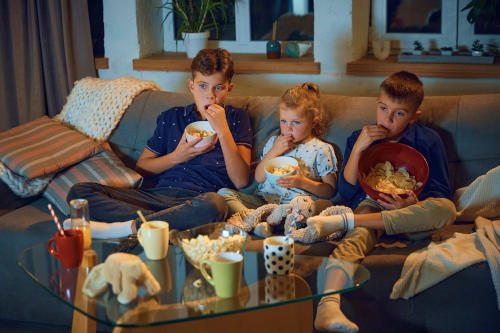It’s well-known that neurodivergent people can have food challenges. Reluctance to eat or following a restricted diet, for example, are common issues in neurodiverse children but can cause great amounts of angst in mums and dads who worry about kids getting the right nutrition.
Laura Hellfeld, who lives in North Yorkshire and works under the tradename ‘Neurodivergent Nurse Consulting’, advises families and professionals on many aspects of living and working with autistic people. One of her specialisms is food challenges – something she understands very well, having identified as Autistic, ADHD and PDA herself. “My own experience of having problems with food as a child is of immense shame,” she recalls. “I was told not to talk about it.”
Challenging Societal Expectations

A lot of food issues can be exacerbated by rigid ideas of how society expects people to behave, she points out. “There’s the ideal of the ‘family meal’ where we all sit down at the same time, interact with each other and all eat the same foods even though people may not be hungry or like the same things. Often, the meal takes place in the evenings when everyone’s been at work or school and is tired which can add to the overload. We need to accept that it’s OK to have different ways of eating and for that to look different from what’s happening in your neighbour’s house.”
If joint meals pose a problem, she recommends finding other ways of spending time together such as playing board games or going to the park.
Mealtimes Can Feel Like a Demand

For a young person with PDA traits (Pathological Demand Avoidance), mealtimes can be especially stressful as the expectation of sitting at a table and eating certain foods can cause overwhelming anxiety. In these circumstances, refusing to eat, Laura explains, is a way of exerting control and may be an indication that there is too much pressure in another area of life such as school.
“A collaborative approach can be helpful,” she suggests. “You might say, ‘Look, we’re having soup this evening which can be very messy. Do you think you could sit at the table to eat it? Maybe tomorrow you could eat your breakfast on the sofa instead.’ Leaving snacks such as crackers and cheese out on the kitchen counters for people to pick up as they please is another low demand way of eating.”
Ways to Help

Parents can help their neurodiverse youngsters to be comfortable around food and eating by being flexible and taking the time to thoroughly understand their child’s needs. “For example, a lot of mums and dads get very frustrated if their child eats very slowly,” Laura continues. “But that may also be linked to connective tissue conditions – some people’s gastrointestinal systems are much slower. But if they sit on the sofa and watch a film under a blanket, maybe they can eat at their own pace.”
Laura’s own children are both neurodiverse and have completely different eating habits, she says, advising that other families should also guard against assuming that their own kids have identical challenges. They can help each child to notice which foods they like, how they make them feel and when they’re hungry or thirsty – which can take time with some youngsters.
“Parents also need to be kind to themselves and understand that they’re doing the best that they can,” she concludes. “Resolving food issues can be a long process and that’s OK. Learning new ways of behaving is hard. It can help to work with someone who really understands your child’s neurotype.




